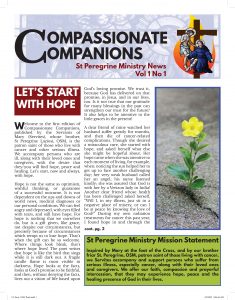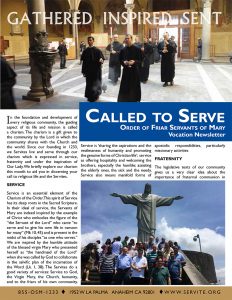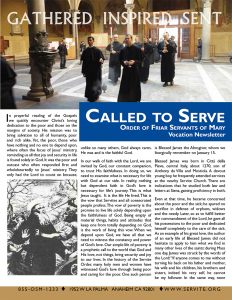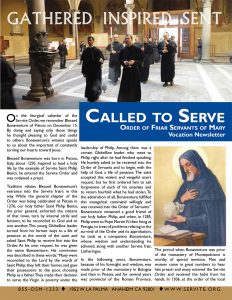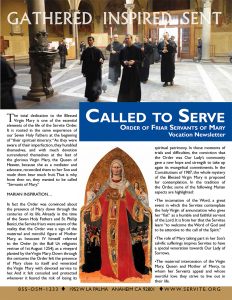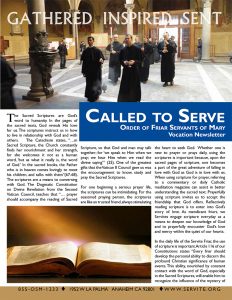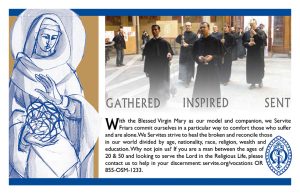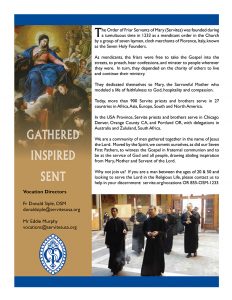News
31 Oct Homily – 31st Sunday in Ordinary Time
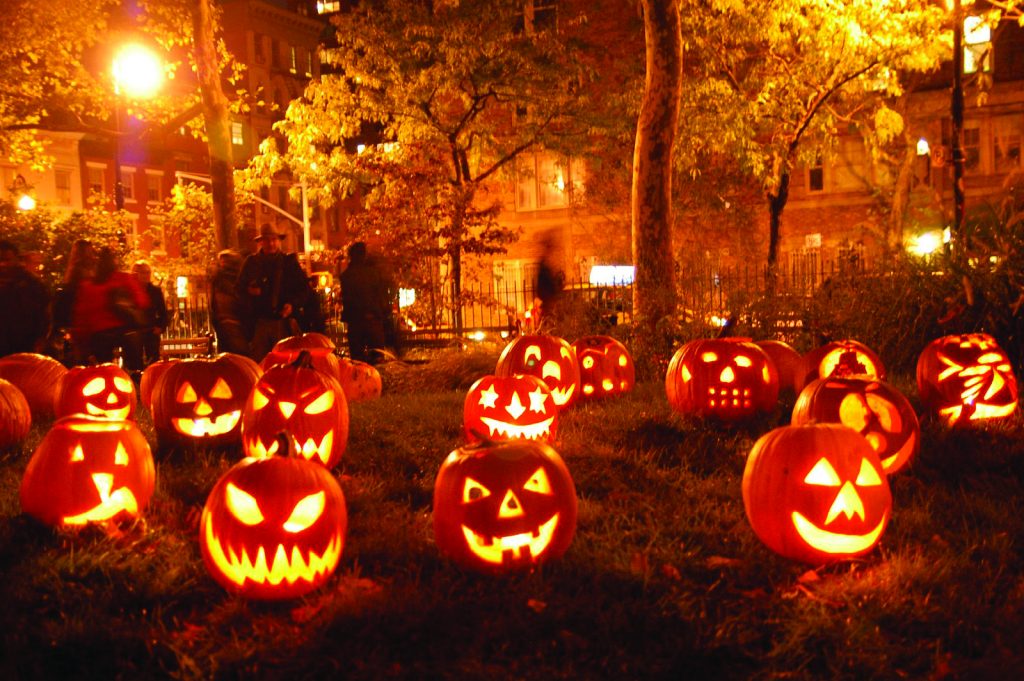
Love God with all your being and love your neighbor as yourself.
Seemingly it is so much easier to love God than it is to love one’s neighbor. Saint John in his first letter asks the question how do you love the God you do not see if you cannot love your neighbor whom you do see. So true witness to loving God is seeing our God in our neighbor and loving the God we see there.
Looking out our dining room window, I noticed the half dozen bright orange pumpkins spread throughout the garden. This is the Halloween weekend in secular society but it is really an ancient pagan celebration that was Christianized some centuries ago.
Ancient Celts marked Samhain as the most significant of their four quarterly fire festivals, taking place at the midpoint between the fall equinox and the winter solstice. It was their New Year. During this time of year, hearth fires in family homes were left to burn out while the harvest was gathered.
Because the Celts believed that the barrier between worlds was breakable during Sow wind, they prepared offerings that were left outside villages and fields for fairies, or migrating souls. It was expected that ancestors might cross over during this time as well, and Celts would dress as animals and monsters so that fairies were not tempted to kidnap them.
As the Middle Ages progressed, so did the celebrations of the fire festivals as large Bonfires. These developed into more personal Sow wind fires nearer the farms and, became a tradition, purportedly to protect families from fairies and witches. Eventually the fires were reduced to carved turnips called Jack-o-lanterns and began to appear, attached by strings to sticks and embedded with coal. Later Irish tradition switched to pumpkins.
As Christianity gained a foothold in pagan communities, church leaders attempted to reframe Samhain as a Christian celebration. In the 9th century, Pope Gregory moved the celebration of All Saints’ Day, to November 1. All Souls’ Day would follow on November 2. Neither new holiday did away with the pagan aspects of the celebration. October 31 became known as All Hallows Eve, or Halloween, and contained much of the traditional pagan practices before being adopted in 19th-century America through Irish immigrants bringing their traditions across the ocean.
Halloween is the night the spook is lose with souls migrating from a dark underworld to a bright, joyous place called heaven. These souls are our neighbors and even deceased family members. Among these neighbors we find the Beatitude people: the poor in Spirit, the mourning, the meek, the hungry and the thirsty for righteousness, the merciful, the pure of heart, the peacemakers, and the persecuted and the insulted, along with migrants, the refugees, and the socially marginalized. These are the neighbors in whom we are called to see God and to love.
Trick-or-treating is said to have been derived from ancient Irish and Scottish practices in the nights leading up to Samhain. In Ireland, mumming was the practice of putting on costumes, going door-to-door and singing songs to the dead. Cakes were given as payment.
Halloween pranks also have a tradition in Samhain, though in the ancient celebration, tricks were typically blamed on fairies.
For me All Saints and All Souls Days can be very personal. There are thousands, and I’d say maybe even millions of unnamed saints and this is the day we can honor our own saints. We have an expression: he or she was a living saint. I saw my mother that way, a living peacemaker, I know people who are quietly mourning a deceased spouse or child and a cemetery visit is healthy and helpful for them. I believe many to be saints. Have you met the merciful in life? I have. Their willingness to forgive despite remembering the hurts, the Gospel calls blessed or another word for Saints. Today the Celtic image has good and wonderful people entering the heavenly home through the thin veil separating this world from that other world of God.
And those who don’t enter or are delayed are immediately remembered on All Souls Day or the Day of the Dead in many Hispanic or Latin traditions. We have an altar of the dead or offrenda set up in our dining room, praying for family, for Servites who have served here and numberless parishioners of Assumption Church.
So Happy Feast Day for all the blessed ones that have been part of your life and you can name them and pray through them like so many other saints. They will never be canonized except by us and All Saints Day will be their feast and that’s why it is a favored feast of mine. So Halloween is not so secular but deeply religious if we see its true meaning as more than costumes and candy, a revelation of God’s love. Amen.
– Fr Michael Doyle, OSM
19 Sep Homily – 25th Sunday in Ordinary Time
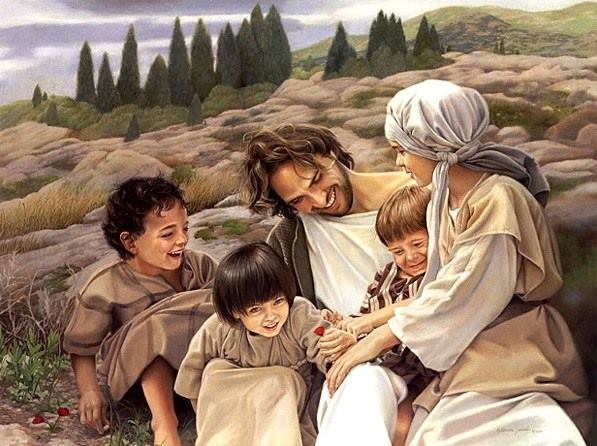
Where jealousy and selfish ambition exists, there is disorder and every foul practice…
Three years ago when we had these readings, we were in the early stages of the Presidential election. Today it seems that despite the election, jealousy and selfish ambition continue to foment disorders and foul practices. Former President Bush, speaking in Shanksville, PA on the 20th anniversary of 9/11 sums it up this way: “So much of our politics has become a naked appeal to anger, fear, and resentment. That leaves us worried about our nation and our future together. I come without explanations or solutions. I can only tell you what I’ve seen.” I share his vision but I look with hope to the prevalence of our Christian faith as expressed in today’s readings.
Yesterday morning’s paper cover the “disorder and foul practices” of violence with 23 shot and four killed overnight, charges of fraud, public indecency, COVID-19 issues, immigration and refugees from Central America, Haiti, and Afghanistan.
Our public leaders spend their time pointing at one another and placing blame always elsewhere. When they ran for office, the airways are full of political ads telling us “oh what a good person am I” and how badly they want to be our servant in representing us on the national, state, or local level. Some even say “I work for you” but I don’t hear anyone saying what Jesus says “I want to be last and servant of all.” Since I read this gospel, in fact all these readings I’ve been listening to what the ads say: virtually nothing about “servant of all.” In honesty and fairness the braggadocious content of the media commercials is one thing all political parties have in common and it focuses on the ME, rather than the “Servant of All.”
The reading from Wisdom reads like a Suffering Servant Song from Isaiah, but from the perspective of the wicked. Whereas the Suffering Servant speaks of his trials at the hands of the ungodly, here the wicked reveal their motivation for attacking the righteous: “he sets himself against our doings…., reproaches us…, and charges us” (Wis 2:12). Sounds like the author of Wisdom has seen the same political ads that I’ve been watching. After the speech of the wicked, the subject turns to the hidden counsels of God.
The reading from the Letter of James also focuses on the wicked, but not as outside opponents. Here the vices of jealousy, selfish ambition, conflicts, envy, killing, and war emerge from one’s passions (Jas 4:1). These elements appear as key ingredients in the political discourse that I’ve seen and heard. The lies are on both sides of the aisle because too often conflict is the only message without little if any references to solutions.
In the Gospel, Jesus catches the disciples fighting over who of them are the greatest, the most important, and the most influential? Who is number one? Remember the game King of the Mountain of childhood years. The same game is played as adults but in more clever and sophisticated ways. The most wealth, the nicest cars, the biggest house are the signs of importance. But Jesus dismisses those symbols and brings a little child, perhaps a street urchin, into the midst of his hand-picked disciples and remarks, with his arm around the child’s shoulder, here is number one. Over 280 children have been shot in Chicago this year. I shudder to think how Jesus reacts to these shootings after embracing childlike innocence as the way to God and healing, compassion and reconciliation.
We give a lot of attention to number one in our society, except that God looks at things differently. Number one is the care-giver, the mentor, the humble servant of the needs of society. So many of the political commentators wring their hands and regret the neglected of society, but their later budgets not only neglect them but too often even reduce what had been given.
I’m sorry if I sound political. I am trying to sound moral and ethical because that is what Wisdom and James are telling us. Jesus in the Gospel of Mark today is very blunt with his disciples and we are his present day disciples. He tells us to remember the little ones of society who are his precious concerns: the refugee, the COVID-19 carrier, those who live in constant fear of violence. I would sort of like him to wrap his arm around my shoulder and yours too as we hear those words: well done good and faithful servant.
Michael Doyle, O.S.M.




